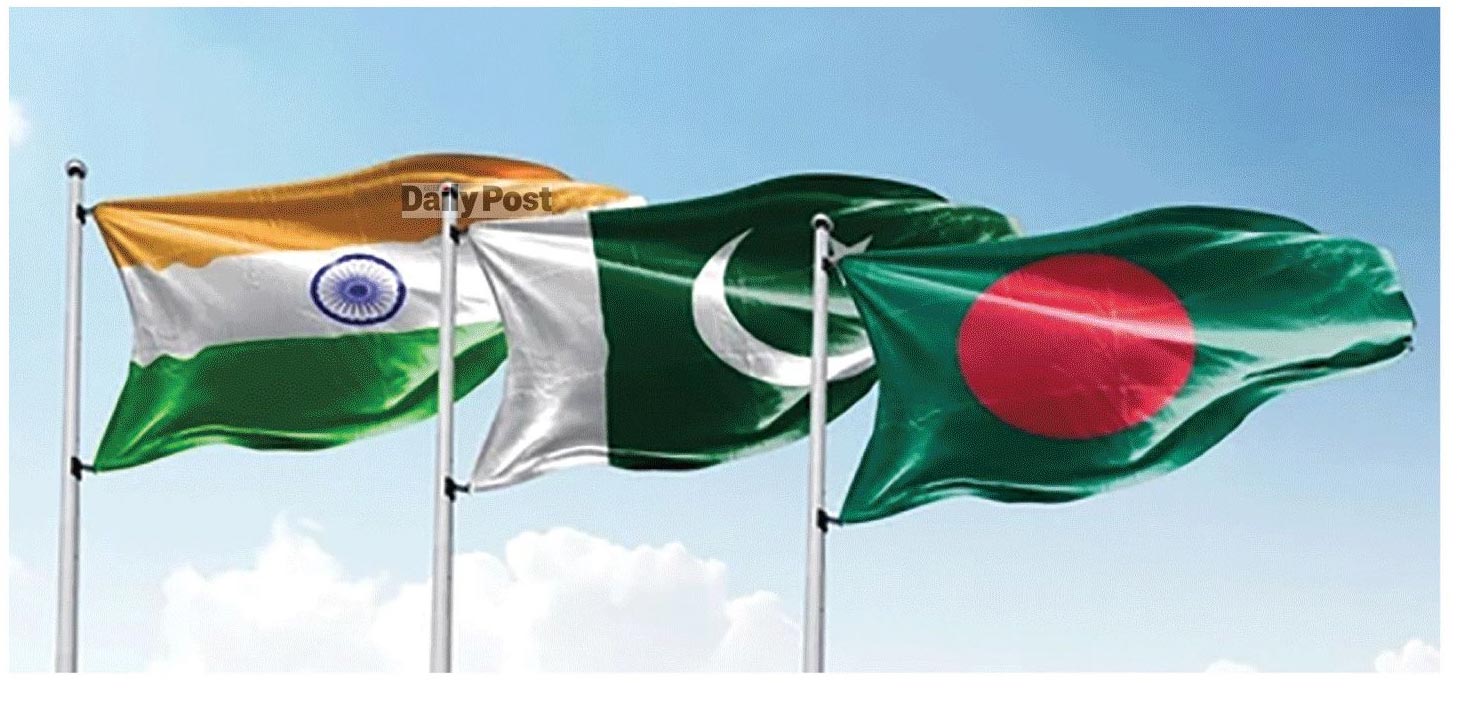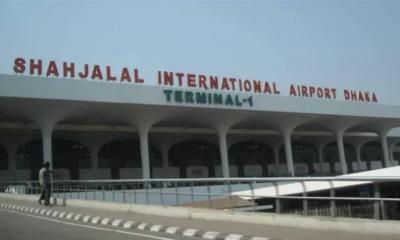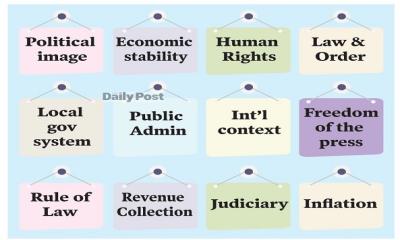Professor Muhammad Yunus, who assumed the office as the Chief Adviser of the interim government on August 8, three days after the ouster of then Prime Minister Sheikh Hasina in a student-led mass upsurge.
Pakistani students will be allowed to enroll at Dhaka University (DU), and Bangladeshi students will also have the opportunity to pursue higher education in Pakistan.
The decision was made during a syndicate meeting chaired by Vice-Chancellor Professor Niaz Ahmad Khan on November 13, said Pro-Vice-Chancellor (Admin) Prof Sayma Haque Bidisha.
The ban had been in place since December 2015, when an emergency syndicate meeting led by then-Vice-Chancellor Prof AAMS Arefin Siddique imposed the restriction.
The move followed Pakistan’s refusal to acknowledge the genocide and atrocities committed during Bangladesh’s Liberation War in 1971.
The recent policy shift comes after a significant diplomatic gesture in September 2024, when Pakistan’s High Commissioner to Bangladesh, Syed Ahmed Maroof, met DU Vice-Chancellor Prof Niaz Ahmad Chowdhury.
Pakistan's first direct cargo ship 'MV Yuan Xian Fa Zhong', to Bangladesh since its 1971 independence docked at the southeastern Chittagong Port on November 13 and left soon after unloading the cargo from Pakistan, signalling a shift in foreign relations under the interim government led by Muhammad Yunus.
"To my knowledge, this was the first cargo ship that came directly from Karachi, mainly carrying raw materials for our textile and ceramic industries,” an official of the Chittagong Port Authority said.
He, however, added that the ship began its voyage from the UAE with its destination being Indonesia and made a stopover in Karachi to load cargo for Bangladesh. Some of the containers also carried goods from Dubai.
Earlier, cargo from Pakistan was shipped from a third country like Sri Lanka, Singapore or Malaysia through feeder vessels.
A commerce ministry official familiar with the process said direct cargo transport from Pakistan reduces the price of commodities and quickens the shipment process.
Pakistan’s High Commissioner to Bangladesh Syed Ahmed Maroof called the voyage a step toward "boosting more integrated and trade network across the region."
For the first time in 28 years, Bangladesh has not found mention as a participating country in the Kolkata International Book Fair schedule (Jan 28 to Feb 9) that was released on Friday.
The absence of Bangladesh has sparked questions about the participation of bookstores and Bangladeshi authors. Nonetheless, their works will be available through Indian publishers.
Traditionally, Bangladesh has been a significant participant, except in 2007 and 2021 when the fair did not occur. However, the current scenario in Bangladesh, particularly the visa impasse, has hampered efforts to include the nation. Guild officials are consulting with the Ministry of External Affairs and the state government for further guidance on the matter.
The neighbouring country has featured in every edition of the city book fair since 1996, when the Sheikh Hasina govt came to office in Bangladesh.
In 1999, Hasina herself attended the fair when Bangladesh was the theme country.
The Indian high commissioner to Bangladesh, Pranay Verma said on October 20 that, “The visas are being issued to those who need them on an emergency basis. Because we have short human resources. It would be possible to resume this (issuing tourist visa) when our activities become normal. But now medical visas are being given to those who need them urgently. Apart from this, we are giving priority to those who are applying for a third country visa going to India.”
Most of the goods imported from Pakistan are 'red listed' by the National Board of Revenue (NBR) on the pretext of security. After a long time, the country's products have been dropped from the 'red list' effective from September 29.
In this context, on the request of Pakistan, the interim government took steps to drop all the imported Pakistani products from the ‘red list’.
Only Pakistani products were in the 'Red List'. The products have been exempted from the 'Red List' as they passed the National Selectivity Criteria test.
On September 10, Pakistan's High Commissioner to Bangladesh Syed Ahmed Maruf met with Finance and Trade Advisor Salehuddin Ahmed.
Salehuddin Ahmed said the trade volume between the two countries had been stagnant for a long time due to various reasons. Pakistan is now eager to drastically increase the bilateral trade volume.
Transparency International Bangladesh (TIB) said India should move away from its negative stance on "New Bangladesh," as the fall of the authoritarian Awami League regime represents the greatest political, diplomatic, and strategic defeat for India in its history.
“We feel that India cannot accept the biggest political, diplomatic and strategic defeat in its history. They do not have the courage to admit it,” said TIB Executive Director Dr Iftekharuzzaman at a press conference.
The TIB executive director said new directions have opened up in Bangladesh's relations with all countries in terms of mutual assistance and cooperation in the current context. “We expect the same to happen (in the relations) with India,” he said.
He said India cannot play the expected "positive role" or show a "positive attitude" following the "positive change" in Bangladesh as India is unable to accept its politically, diplomatically and strategically biggest defeat in history.
“They (India) are still seeing Bangladesh through the prism that supports this authoritarianism (in Bangladesh),” said Iftekharuzzaman.
He added that this has created a significant risk for India in playing the role of a catalyst in cases that could lead to potential destabilization in Bangladesh.
The TIB executive director said many people had the perception that "liberal thinking" was promoted in Indian political space, people and media. “We think India has changed (from that liberal thinking).”
He said the way Indian media are projecting Bangladesh is at least risky and definitely a "disturbing factor" for Bangladesh. “It has created an embarrassing situation for us. But we also think it is very embarrassing and shaming for India itself. So, India has to move away from this path,” said Iftekharuzzaman.
He appreciated the role of the interim government of Bangladesh regarding the bilateral relations with India as it is always looking to keep the door open. “We always talk about keeping the door open. India is our biggest neighbour. We would like to maintain a positive relationship with India. The role of India in this regard is the most important,” he said.
Noting the risks in Bangladesh's transitional process, the TIB executive director emphasized that India's role could either be positive or negative in every case, cautioning that "that risk must be kept in mind."
Professor Imtiaz Ahmed said that from an economic point of view “it is surprising to me why there were no direct shipments to and from Pakistan so far since the two countries are engaged in trade relations despite strained political relations”.
But, he said, as far as regional and geopolitical politics were concerned, “you should not do anything annoying other major countries like India, a reference to Yunus's comments that he wanted to revive the South Asian Association for Regional Cooperation (SAARC).
“In diplomacy, we need inclusion instead of alienating anyone...If India wants, SAARC will revive, if it does not want to, it will remain inactive as it is now and even if you want to form a new regional alliance discarding India, you have to consider as well if other countries would like to discard a giant elephant,” Ahmed said.
On India-Bangladesh ties after the ouster of the Sheikh Hasina regime, the analyst said, "I think what is going on now is a temporary phenomenon and eventually Dhaka-Delhi ties should be on the right track for mutual benefit”.
During the recent UN General Assembly in New York, Yunus held meetings with Pakistani Prime Minister Shehbaz Sharif and other regional leaders, but an expected meeting with Indian Prime Minister Narendra Modi did not take place.
Director of the Wilson Center’s South Asia Institute Michael Kugelman said in a recent media interview that, "It is very clear that the interim government, because of its concerns about its partnership with India, would want to take a bit of a different approach to Pakistan,”
Bangladesh founder Sheikh Mujibur Rahman was unwilling to strengthen ties with Pakistan due to its lack of a full apology for the 1971 war. His daughter, Hasina, in 2022, denied Pakistan's request for the Chinese-built frigate warship PNS Taimur to dock at Chittagong Port.
ZH






